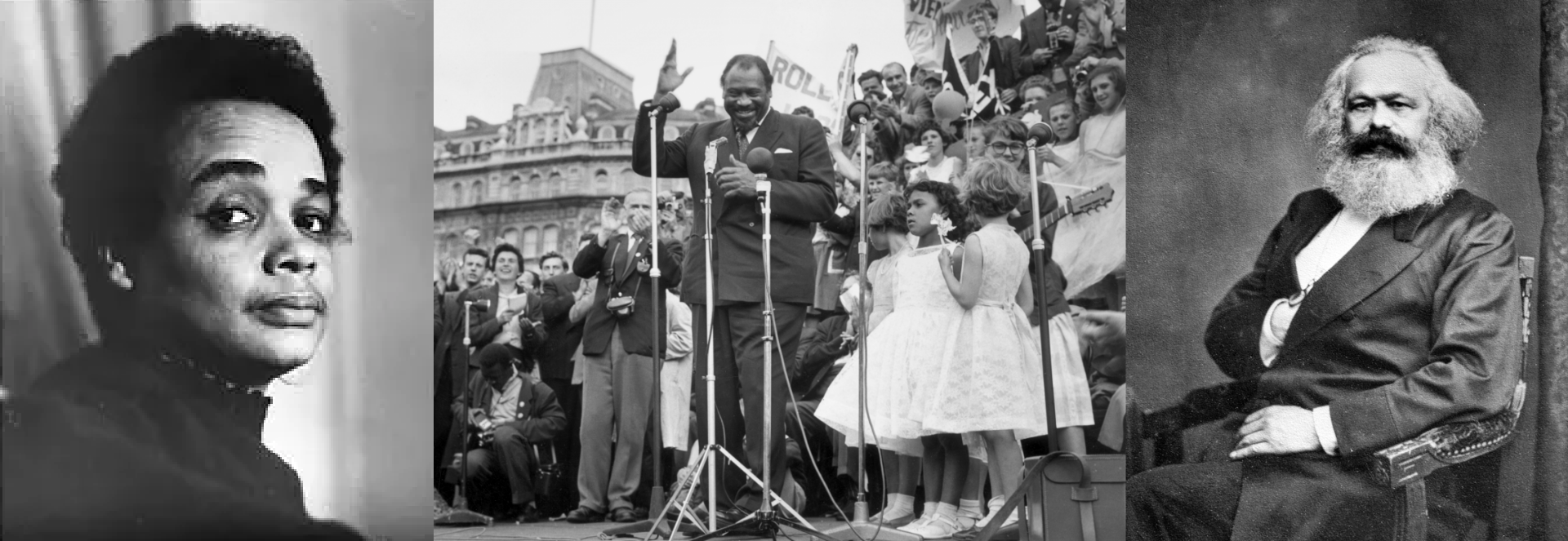On July 26. 1953, before many of us were even born, a small group of Cuban patriots led by Fidel Castro attacked an army barracks called Moncada. The attack was put down and many of the patriots were murdered after being taken prisoner. Fidel Castro was himself captured, put on trial and sentenced to over 25 years in prison. And yet that date is today celebrated in Cuba as one of the people’s most important national holidays, because it began a movement that only five years later would bring down the hated Batista dictatorship.
Well, someone might day, “Good for Cuba. But what’s it got to do with me?” Okay, you be the judge as to whether the Cuban revolution means anything to us here in New York.
Fidel Castro, the leader of what has come to be known as the July 26th Movement, is speaking before the judges who are about to sentence him. He must explain why he struck that first blow at Batista. He speaks about how so many of the people in the Cuban countryside were without land, how almost all of it was owned by just a handful of rich landowners. He describes how the poor farmers were without work most of the year, and even when they had work how they were paid next to nothing. He talks about the children going hungry and being filled with worms. Now haven’t many poor families come to New York because they were driven off the land they had worked for generations? Haven’t the farms in this country been taken over by a few giant corporations?
Fidel then speaks about the housing problem in the cities, about people facing constant worry of being evicted, of having to pay up to a third of their earnings on rent. He thought that was bad! But aren’t poor people here in New York spending half or more of their income to keep a roof over their heads, and for nothing better than rat-infested firetraps? Aren’t 25,000 people in New York evicted every year, many winding up on the streets or in what are called shelters, but which are often worse than the streets?
Fidel speaks about thousands of Cuban children dying every year because of a lack of doctors and medicines for the poor. But don’t we have the same situation in New York? Aren’t they closing down our hospitals and clinics and pharmacies? Isn’t the rate of infant deaths in Harlem higher than in most Third World countries and growing worse? Isn’t AIDS out of control? Aren’t measles TB coming back strong, which we thought we had wiped out years ago?
Fidel goes on to speak about unemployment in Cuba. Well, here in New York, 75 percent of the African-American and Latino youth can’t find jobs.
The educational system is a disgrace in Cuba, says Fidel to his judges. Here in New York, half the young people are dropping out of school. And those who graduate and try to go on to college are facing cuts in aid and ever higher tuition costs. Soon, only the wealthy will be able to get a higher education.
Fidel speaks about how the so-called justice system in Cuba only works for the rich. Well, we know who’s inside our prisons, and it isn’t crooked businessmen.
Of course what Fidel said made no impression on the judges. They sent him to prison along with everyone else they could catch who had attached the Moncada barracks. Many people thought that the movement to free Cuba was finished, that the government was too strong. And besides, it had the backing of the powerful US government. But as it turned out, the people forced Batista to free Fidel; eventually he and his companions drove Batista out of Cuba.
No, the Cuban revolution hasn’t put any money in our pockets. But Cuba has shown that it is possible even for a poor underdeveloped country to end illiteracy, to provide a free, quality education for all, good free health care for all, good housing that all can afford, and jobs for all. And wherever people are being oppressed in the world, Cuba speaks up for them.
The US government has for 30 years been trying to destroy the new Cuban way of life. Washington wants to bring back the ‘good old days” of a Jim Crow Cuba, of a Havana controlled by the Mafia, of the Cuban people sweating for starvation wages for US corporations. But we say:
“Hands off our Cuban sisters and brothers! End the blockade!”





